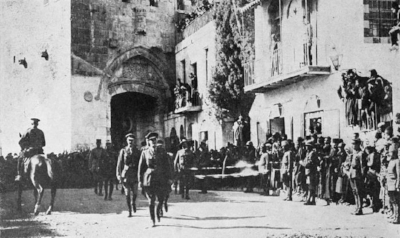As I do periodically, I thought I might share with you my weekly email to my students at Babson College here in MA. Several of them privately shared their fears with me this week, as once again antisemitism made headlines. This time, it surfaced via the unapologetic voices of two the most famous people in the world—with two of the largest online followings in the world. If you read through to the end, please note my postscript that I’m adding for this blog. —Neal
Unfortunately, it was a rough week in the news for Jewish Americans. Because this week, anti-Jewish hatred reared its ugly, snarling head from two directions.
The most famous entertainer in the world spewed an irrational, hate-filled tirade on a popular podcast and (of course) on Twitter, where he swore to go, um, “Deathcon 3” on “the Jews.” Simultaneously, the former President stoked antisemitism again when he claimed American Jews weren’t “grateful enough” for his past support of Israel and they should “get their act together” “before it’s too late.”
The fact that both of these statements sound like threats of violence is bad enough for a community on edge. And the fact that both of these individuals have massive numbers of followers, some of whom belong to antisemitic blocs who might take these comments as dog whistles, is even worse.
After all, the Jewish community has experienced a terrifying rise antisemitic assaults in the past few years—unprecedented in our lifetimes—to know that violent language unchecked inevitably leads to violent actions. Do we have to go over, once again, the list of the Jews who have been killed, the synagogues that have been attacked, and the Jewish institutions that have been vandalized?
But what feels so awful this week is that the hatred has been so coarse and… old. Here's what I mean.
Every minority group has a history of being victimized by bigots. And for each group, there is the coarsest, grossest sorts of stereotypes with which they’ve been slandered. Think about it for a minute, and you’ll know what I mean.
So, the Jew-hatred that we’ve seen this week struck all the most ancient and archaic tropes. Kanye’s hate included: the Jews run Hollywood and the media; insidious Jewish power blocs will shut down anyone they disagree with; Jews are rich and their moneyed interests manipulate the world. These are the most disgusting and, well, clichéd forms of antisemitism, and it’s so sad that there is still a large and eager audience for them.
What Kanye missed the former President picked up on. That’s the slander of “dual loyalty:” You must not be “real Americans,” because your secret loyalty lies elsewhere—namely, the State of Israel. Haven’t we all had enough of this man’s pathetic charges that if you’re not with him, you’re anti-America?
Money. The media. The banks. Secret power. Dual loyalty. There’s nothing new here; it’s all the classic forms of anti-Jewish hate. And it was all thrown in our faces this week very publicly by very famous and influential people.
So where do we go from here? Where do we find hope?
As for me, I find hope in you. In the Jewish community, there is hope to be found whenever someone asserts their Jewish identity, embraces their heritage, and refuses to be afraid. The Torah emphasizes joy and love, and I’m determined not to let haters steal those things from us.
And outside the Jewish community, there is hope to be found whenever people stand united with each other against hate and say: we refuse to let others’ lies and slanders turn us against each other. Love and decency win out in the long run, even if they seem to get trounced in the short run.
Earlier this week, an interfaith and multicultural group of students, faculty, and staff gathered beneath the Babson Globe to stand in solidarity and prayer, simply to bear witness to the pain and suffering in the world. It was very powerful, and I left the Peace Circle filled with hope and energy.
I had the privilege of closing that gathering, and I shared the following words from the 19th century mystical master Rebbe Nachman of Bratzlav. (Bratzlav, by the way, is in besieged Ukraine.) These, too, are words of hope:
וְדַע שֶׁהָאָדָם צָרִיךְ לַעֲבֹר עַל גֶּשֶׁר צַר מְאֹד מְאֹד
וְהַכְּלָל וְהָעִקָּר – שֶׁלֹּא יִתְפַּחֵד כְּלָל
Know this: That each person must cross a very—very!—narrow bridge.
And the rule, the fundamental thing, is: Not to be afraid.
Shabbat Shalom,
Neal
That’s what I wrote to my students. Here, I’ll add that two other things happened to me this past week that also gave me hope, along the lines of the themes that I included in my final paragraphs above:
In the spirit of interfaith sharing, I felt lucky to be part of a discussion panel that met at First Parish Church in Weston, MA earlier this week. Each panelist - representing Jewish, Muslim, Christian, and Baha’i faiths - spoke on the theme of “Hope in Our Fractured World.” There were about 100 people in attendance. And it was quite lovely; a gathering of people of good faith, seeking a bit of common ground, understanding, and perspective from one another.
Second, there was Simchat Torah. And it occurs to me that in recent years, Simchat Torah could be subtitled, אף על פי כן / “In spite of it all…”. In other words, we know that there’s a lot of pain in the world, as institutions and protections and beliefs we took for granted sway precariously. And in spite of it all: This week, we took the Torah in our arms and danced and sang. At least, that’s what we did at the Walnut Street Minyan in Newton, MA. And it was beautiful and joyous, and filled with hope, as we bid the holiday season farewell, and prepared to face the winter that is coming…

